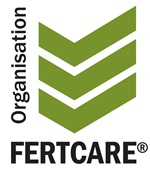
The program scope includes environment, food safety and occupational health and safety issues associated with fertiliser and soil ameliorant products throughout the supply chain. The industry’s objectives are to manage risk and liability and to maintain an effective position in public policy development in these areas.
The program focuses on providing high quality advice to users of fertilisers to allow them to maximise productivity and minimise environment and food safety risk.
Training Options
Fertcare Handling
Fertcare Handling is for people involved in the direct handling of fertilisers, customer service and general rural merchandise roles. It addresses environmental, food safety and Occupational Health and Safety issues associated with transport, storage and spreading of fertiliser and soil amendments.
Fertcare Sales & Service
Fertcare Sales and Service is for people who provide general fertiliser use advice to farmers. It improves participant's knowledge of fertiliser and soil amendment products while enabling them to provide warnings and simple advice.
Fertcare Accredited Advisor
Fertcare Accredited Advisor is for people providing detailed fertiliser use advice based on soil and plant analysis. It focuses on the environmental and food safety risks associated with the end use of fertiliser and soil amendments.
For further information visit the Fertcare website.
